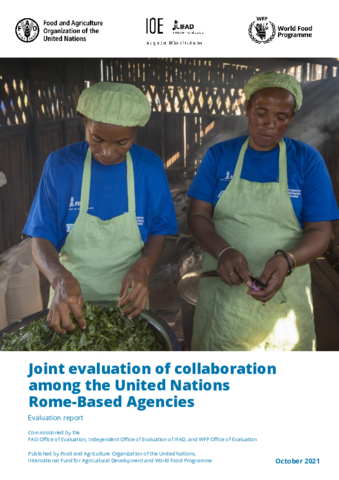
The Food and Agriculture Organization of the United Nations (FAO), the International Fund for Agricultural Development (IFAD) and the World Food Programme (WFP) are the three Rome-Based Agencies (RBAs) of the United Nations. Since 2008, there have been growing calls, mainly by Member States (through the Governing Bodies and by individual governments), for RBA collaboration (RBAC) to be intensified and optimized.
The evaluation answered four questions:
- How relevant is RBA collaboration in contributing to the achievement of the 2030 Agenda for Sustainable Development?
- What are the positive, negative, intended and unintended results of RBA collaboration to date?
- What factors have enabled or hindered the effectiveness of RBA collaboration?
- What is the added value of RBA collaboration (as opposed to single Agency processes and results) across the different aspects and levels?
The evaluation spanned RBAC at country, regional and global levels (focusing on the country level), and includes all forms of collaboration (which it defines as joint work) between the RBAs.
Evidence was gathered remotely (due to COVID-19) through 12 country studies; eight ‘deep dive’ studies of selected themes; extensive document review; and an online survey of RBA professional staff. Some 400 informants expressed their views in interviews and meetings.


